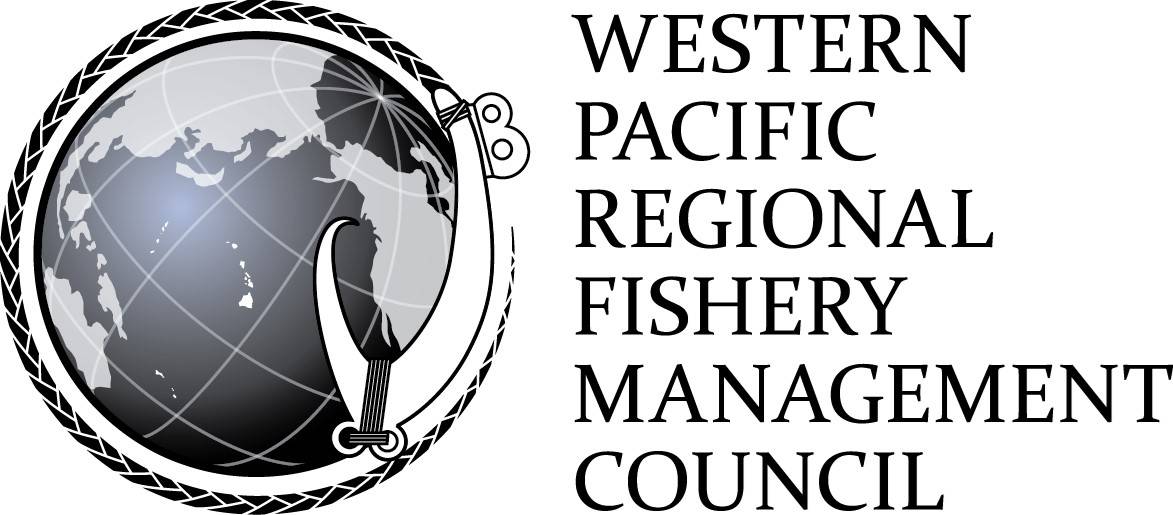Western Pacific Regional Fishery Mangement Council members expressed dismay with the continued problem of the lack of federal government consultation with territorial governments on Endangered Species Act (ESA) issues, including green sea turtles, giant clams and oceanic whitetip sharks.
“The lack of consultation with the governors of the U.S. territories for federal initiatives shows disrespect—the Governors are our leaders and we look to them for guidance.” Guam Council member Judith Guthertz, former president of the University of Guam, expressed frustration with NOAA and the U.S. Fish and Wildlife Service (USFWS) not responding to the October 2023 letters from the U.S. Pacific Territorial Governors. These letters requested an extension of the comment period on the proposed designation of green sea turtle critical habitat. Affected communities need additional time to review the 800 pages of proposed rules and accompanying documentation.
Guthertz continued, “I teach values, governance and public administration at the University of Guam, but it is becoming harder for me to make the case to my students that we are valued by the U.S. government.”
The Council requested NOAA and USFWS to work with American Samoa, Guam and the Commonwealth of the Northern Mariana Islands (CNMI) governments to review the information underlying the proposed green sea turtle critical habitat designation before publishing the final rule.
With the lack of communication on the pending response to the giant clam ESA listing petition, Chelsea Muña, Guam Department of Agriculture director, said “[the rule] isn’t going to affect other countries, it affects us.” The National Marine Fisheries Service (NMFS) received a petition in 2016 to list 10 species of giant clams under the ESA, and announced in 2017 that seven of the 10 would undergo a full status review to determine if a listing was warranted. The findings are expected to be published in the coming weeks, but have not been communicated to the territorial agencies.
Pacific Islands communities, including U.S. island areas of American Samoa, Guam and the CNMI, have long-standing traditions of utilizing giant clams. Muña described giant clam aquaculture programs in Guam, which are set up as community-based management that helps empower the community to take responsibility and ownership. The Council requested NMFS to coordinate with the American Samoa, Guam and CNMI governments to review the information used in the giant clam status review before publishing the ESA-listing petition 12-month finding.
The Council also urged NMFS to hold public hearings and extend the public comment period on a proposed rule published in May 2024 to prohibit “take” of threatened oceanic whitetip shark, with limited exceptions for research and enforcement activities. The public comment period closes July 15, 2024. Take under the ESA is defined as “harass, harm, pursue, hunt, shoot, wound, kill, trap, capture, or collect, or attempt to engage in any such conduct,” and includes accidental hookings or entanglements in commercial or recreational fisheries.
The Council discussed hardships in sustaining American Samoa’s tuna economy. Restrictions on using imported frozen cooked tuna loins for duty-free canned tuna production is a disproportionate burden on the purse seiners homeported in Pago Pago. To alleviate this, the Council is seeking increased tariffs on imported tuna products, allowing American Samoa duty-free access to the U.S. market for locally produced canned tuna, closing tariff loopholes and developing funding programs to boost local fish catches. In 2022, purse seine and longline vessels landed 170 million pounds at the port of Pago Pago worth $108 million that supports the local economy.
Annual SAFE Report for Open Ocean Fisheries
Council members heard a detailed update on the 2023 performance of pelagic federal fisheries in the U.S. Pacific Islands from the Council’s annual Stock Assessment and Fisheries Evaluation (SAFE) report. In the Hawai‘i longline fishery and other open ocean fisheries across the region, yellowfin tuna landings increased significantly, while other tuna species like albacore, skipjack and bigeye showed mixed trends.
The Hawai‘i deep-set longline fishery that targets tuna caught 25.7 million pounds, with a total ex-vessel revenue of $100.5 million, while the shallow-set longline fishery that targets swordfish caught 1.6 million pounds, resulting in $6.8 million.
Electronic Monitoring in Hawai‘i Longline Fisheries
Last September, the Council endorsed the development of an electronic monitoring (EM) pre-implementation plan aiming to enhance the sustainability and oversight of Hawai‘i longline fisheries. The primary objective of this EM program is to monitor protected species.
At the meeting, the Council recommended further exploration of regulatory considerations to utilize EM to complement or fulfill data collection requirements as currently implemented by federal observers. This includes conducting a cost/benefit analysis, reviewing existing observer and logbook programs, and evaluating the relationship between EM and human observer coverage. With annual costs of at least $2.4 million, $15 million is needed to begin the program.
The next Council meeting will be in September 2024. Check the Council website for updates.
Western Pacific Regional Fishery Management Council: Secretary of Commerce appointees from nominees selected by American Samoa, the CNMI, Guam and Hawai‘i governors: Will Sword, noncommercial fisherman/engineer (American Samoa) (chair); Roger Dang, Fresh Island Fish Co. (Hawai‘i) (vice chair); Manny Dueñas, Guam Fishermen’s Cooperative Association (Guam) (vice chair); Judith Guthertz, University of Guam (Guam); Pete Itibus, noncommercial fisher (CNMI); Shaelene Kamaka‘ala, Hawaiian Islands Land Trust (Hawai‘i); Matt Ramsey, Conservation International (Hawai‘i); and Gene Weaver, Tasi to Table (CNMI). Designated state officials: Dawn Chang, Hawai‘i Dept. of Land & Natural Resources; Sylvan Igisomar, CNMI Dept. of Lands & Natural Resources (vice chair); Chelsa Muña, Guam Dept. of Agriculture; and Archie Soliai, American Samoa Dept. of Marine & Wildlife Resources (vice chair). Designated federal officials (voting): Sarah Malloy (acting), NMFS Pacific Islands Regional Office. Designated federal officials (nonvoting): Colin Brinkman, U.S. State Dept.; Brian Peck, U.S. Fish & Wildlife Service; and RADM Michael Day, U.S. Coast Guard 14th District.
